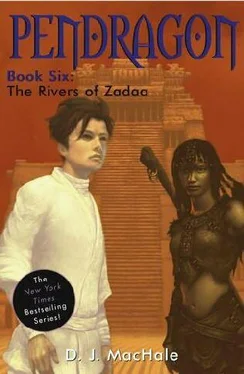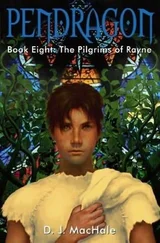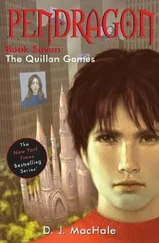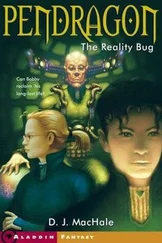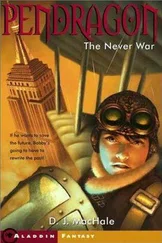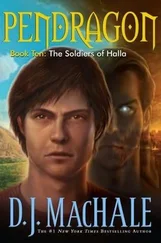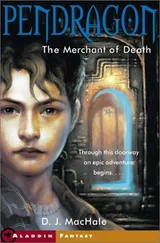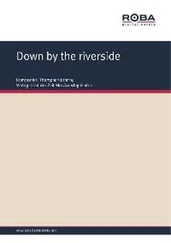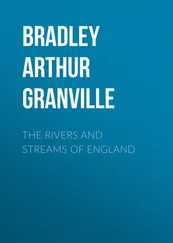D. MacHale - The Rivers of Zadaa
Здесь есть возможность читать онлайн «D. MacHale - The Rivers of Zadaa» весь текст электронной книги совершенно бесплатно (целиком полную версию без сокращений). В некоторых случаях можно слушать аудио, скачать через торрент в формате fb2 и присутствует краткое содержание. Жанр: Фантастика и фэнтези, на английском языке. Описание произведения, (предисловие) а так же отзывы посетителей доступны на портале библиотеки ЛибКат.
- Название:The Rivers of Zadaa
- Автор:
- Жанр:
- Год:неизвестен
- ISBN:нет данных
- Рейтинг книги:5 / 5. Голосов: 1
-
Избранное:Добавить в избранное
- Отзывы:
-
Ваша оценка:
- 100
- 1
- 2
- 3
- 4
- 5
The Rivers of Zadaa: краткое содержание, описание и аннотация
Предлагаем к чтению аннотацию, описание, краткое содержание или предисловие (зависит от того, что написал сам автор книги «The Rivers of Zadaa»). Если вы не нашли необходимую информацию о книге — напишите в комментариях, мы постараемся отыскать её.
The Rivers of Zadaa — читать онлайн бесплатно полную книгу (весь текст) целиком
Ниже представлен текст книги, разбитый по страницам. Система сохранения места последней прочитанной страницы, позволяет с удобством читать онлайн бесплатно книгу «The Rivers of Zadaa», без необходимости каждый раз заново искать на чём Вы остановились. Поставьте закладку, и сможете в любой момент перейти на страницу, на которой закончили чтение.
Интервал:
Закладка:
I climbed out of the sphere, hopped onto the tread, and turned to look in the direction of the chasm. What I saw was impossible. It was made all the more bizarre by the fact that all around me, hundreds of Rokador and Batu were staring at the same thing, and probably thinking it was just as impossible as I did.
We were looking at an ocean.
It spread across the horizon in either direction. I couldn’t tell how far on either side of us it went, but the shore began barely a hundred yards behind where we had stopped. What made it seem even more surreal were the dozens of powerful water geysers that continued to shoot into the air. It was like some incredible, natural display.
“It is the Kidik Ocean,” Loor said. She was standing next to me. So were Alder and Saangi.
Alder said, “The ceiling of the cavern must have collapsed.”
“Or got blown apart,” I suggested.
As we stood watching in awe, the water geysers grew weaker. They no longer shot hundreds of yards into the air. One by one they lost power and shrank down. Within minutes they disappeared.
“It’s over,” I said.
“Is it?” Loor asked. “Or has it just begun?”
JOURNAL #23
(CONTINUED)
ZADAA
You’ve heard the term “earth shattering,” right? I don’t think I’ll ever use that phrase to describe anything else again. How could I? Nothing could be more “earth-shattering” than what I witnessed that day on Zadaa. Literally. Or maybe it was more like shattering. Whatever. It was amazing. The underground realm of the Rokador was destroyed, and out of that destruction was born an entirely new world. I’ll do my best to describe it to you, but I know that my words won’t even come close.
We drove the dygo along the shore of the new ocean, headed back toward Xhaxhu. At least we thought we were headed there. The best we could do was make an educated guess based on both the route we had traveled to Kidik and the sun. We had survived, that much was certain. Many hadn’t. As we sped along the shore, we had no idea what we would find in Xhaxhu. Had the flood and the cave-in also destroyed the Batu city? More important than the city itself was the question of how many Batu died in the underground? For that matter, how many Rokador made it out alive? This story was far from over.
The new ocean stretched for miles. It soon narrowed down to a river. Yes, there was a new river on Zadaa. Above the ground. I looked through the water-spattered windshield to see that the new waterway continued on through the desert for as far as I could see, but not before skirting around what looked to be giant sandstone pyramids far in the distance. “Xhaxhu!” Saangi exclaimed.
Yes, Xhaxhu. The city hadn’t crumbled. We all exchanged relieved looks. The future seemed a bit brighter.
“If this waterway is being fed from the rivers to the north,” Loor said, “Xhaxhu is no longer a city in the desert.”
“I want to see this in a couple of years,” I said. “I’m thinking farmland, trees, pastures for grazing-“
“Is that possible?” Saangi asked, wide-eyed with wonder.
“Possible?” I answered. “I think it’s probable.”
What we saw next was further proof of the possible. We abandoned the dygo outside the walls of Xhaxhu and walked into the city on foot. No sooner did we enter than Loor stopped cold. We all did. What we saw was truly incredible.
Xhaxhu was back. The troughs that lined the streets flowed with clean, clear water. The fountains around the statues had come back to life, spraying ornate patterns of water high into the air. The people of Xhaxhu weren’t exactly celebrating. I think they were in shock. They lined the troughs, scooping up handfuls of water and drinking their fill. Children splashed and played. I saw more than one person crying with joy. Their nightmare was over. It seemed like it was almost too much for them to get their heads around. I wondered what they would think when they discovered that a river of fresh water was now flowing not far from their doorsteps.
Seeing the Batu reveling in their new fortune had another meaning. The tribe had survived. There were ordinary citizens in the streets, as well as Ghee warriors. That was important.
Whatever happened during the invasion, at least some of the Ghee had turned back before it was too late. The Batu tribe would survive. The Ghee were intact to protect the city against the marauding, cannibal tribes. Civilization on Zadaa would continue.
Saint Dane had lost.
“There is an irony here,” Loor said.
“What’s that?” I asked.
“Xhaxhu has been reborn, perhaps better than before, thanks to Saint Dane,” she said.
It was true. Saint Dane had tried to destroy two tribes and ended up creating new life, and new hope, for the territory.
Saangi added, “It is only fitting that it happened during the Festival of Azhra!” The young acolyte gave us a huge, satisfied grin. I had to laugh. Alder did too. Even Loor chuckled and shook her head.
Of course, Saint Dane didn’t act alone. The Rokador played a big part in this, and paid a steep price. Over the next few weeks we learned the extent of their misfortune.
Their underground civilization was no more. And more devastating than the destruction of their world of tunnels was the loss of life-multiple thousands had died because of the virus that swept through them like the plague. The Rokador had come within a whisper of being obliterated. But there was some good news. Most of those who survived the virus escaped the destruction of the underground. They used the thousands of escape routes that had been carefully dug for generations.
Ironically, it was determined that those same tunnels were the ultimate cause of the grand collapse. Miles of hard rock were honeycombed with so many tunnels, it had become unstable. The Rokador world was a disaster waiting to happen. When it was tested by the pressure from the rising ocean, it failed. The area that was most developed, Kidik, collapsed. The ruins now lay at the bottom of a brand-new ocean in the desert.
The Rokador elite survived. They were put on trial and sentenced to prison terms for attempted genocide. I wondered how those kids were going to do in jail. I figured they wouldn’t be there long. They really had no say in what had happened. The engineers were put on trial as well. They tried to argue that they were only following orders. It didn’t fly. They were sentenced to prison.
I thought the decision was sort of unfair. After all, it was Saint Dane who planted the idea in their heads. He should have been put on trial too. Yeah, right. Like that would happen. But I guess in the end it was the decision of the elite and the engineers to go forward with the horrible plot. There had to be some form of punishment. There was special consideration given to the fact that they were in such a desperate state due to the virus. Their sentence could have been worse. Way worse. The Batu weren’t above execution. These guys were lucky. They would eventually be released and returned to their tribe.
The royal family of Zinj presided over the trials. Throughout, the family echoed the words and wisdom of their hero son, Pelle, who preached peace and tolerance. To that end, the surviving Rokador were promised help and protection, so they could rebuild their civilization-on the opposite side of the new river. There would be no more tunneling. The royal family of Zinj recognized the advances of the Rokador society, and how valuable the two tribes could be to each other. They hoped that this tragedy would begin a new era of cooperation.
Not all the Rokador were punished. Many of the Tiggen guards were proclaimed heroes. Most had no idea of the plot to destroy the Batu until it was too late. Once the destruction began, they were credited with saving every single Rokador who made it out of the underground alive.
Читать дальшеИнтервал:
Закладка:
Похожие книги на «The Rivers of Zadaa»
Представляем Вашему вниманию похожие книги на «The Rivers of Zadaa» списком для выбора. Мы отобрали схожую по названию и смыслу литературу в надежде предоставить читателям больше вариантов отыскать новые, интересные, ещё непрочитанные произведения.
Обсуждение, отзывы о книге «The Rivers of Zadaa» и просто собственные мнения читателей. Оставьте ваши комментарии, напишите, что Вы думаете о произведении, его смысле или главных героях. Укажите что конкретно понравилось, а что нет, и почему Вы так считаете.
